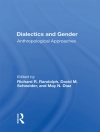In our age of globalization and multiculturalism, it has never been more important for Americans to understand and appreciate foreign cultures and how people live, love, and learn in areas of the world unfamiliar to most U.S. students and the general public. The four volumes in our cultural sociology reference encyclopedia take a step forward in this endeavor by presenting concise information on those regions likely to be most ‘foreign’ to U.S. students: the Middle East, Asia, and Africa. The intent is to convey what daily life is like for people in these selected regions. It is hoped entries within these volumes will aid readers in efforts to understand the importance of cultural sociology, to appreciate the effects of cultural forces around the world, and to learn the history of countries and cultures within these important regions.
About the author
Edward Ramsamy, Ph.D. is Associate Professor of Africana Studies and member of the graduate faculty of Geography, and the graduate faculty of Urban Planning and Policy Development at the Bloustein School. He is the author of the book The World Bank and Urban Development: From Projects to Policy (Routledge, 2006). In addition to his research in international development planning and geographies of globalization, Dr. Ramsamy’s fields of study include the political economy of transition and nation-building in post-colonial/developing societies, as well as the comparative politics of identity and race relations in South Africa and the United States. He has edited Science, Culture and the Politics of Knowledge: Contexts and Conversations (forthcoming, Cambridge Scholars Press), and The Black Experience in America (with Gayle T. Tate, 2006, Kendall Hunt). He has published numerous articles on regional integration in southern Africa, as well as racial, ethnic, and national identity in post-apartheid South Africa. Dr. Ramsamy is Secretary and a Founding Trustee of the Global Literary Project, Inc. He is also the recipient of numerous honors and awards, including fellowships from the Social Science Research Council, the Center for the Critical Analysis of Contemporary Culture, and the Institute for Research on Women.












